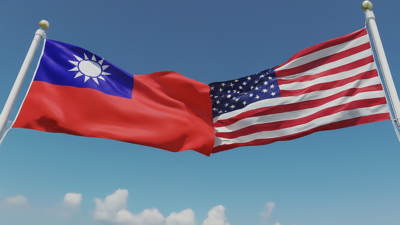TAIPEI: Taiwan’s cabinet announced on Thursday a planned special budget of up to NT$410 billion ($12.6 billion) to boost security and the economy against the impact of new US tariffs.
Taipei said it held its first tariff discussions with the United States this month as President Lai Ching-te seeks to shield Taiwan’s exporters from a proposed US tariff of 32 percent.
US President Donald Trump has postponed punishing levies on multiple trade partners, including Taiwan, for three months after trillions of dollars were wiped off global markets.
Trump has maintained a 10 percent blanket duty on most countries but paused plans for steeper measures, except for China.
Taiwan’s trade surplus with the United States is the seventh highest of any country, reaching $73.9 billion in 2024.
Around 60 percent of its exports to the United States are information and communications technology products, including semiconductors.
Premier Cho Jung-tai said in a statement the special budget was in response to “the impact from US tariff policy on our industries, export structure and overall employment market, as well as on social livelihood and prices”.
It will be divided into four areas to support the industries: the employment market, public welfare and education, as well as strengthening resilience by enhancing coastal patrols and other defence facilities and equipment, the cabinet said.
A previously announced NT$88 billion assistance package for industries hit by the new tariffs will be covered by this planned budget, which requires parliamentary approval, it said.
Taiwan had sought to avoid Trump’s threatened levies by pledging increased investment in the United States, more purchases of US energy and greater defence spending.
Taiwan’s chipmaking giant TSMC also said last month it would invest $100 billion in the United States in what was hailed by Lai as a “historic moment” for Taiwan-US relations.







